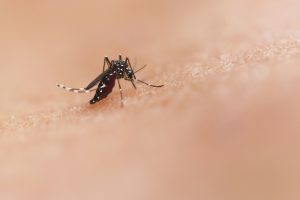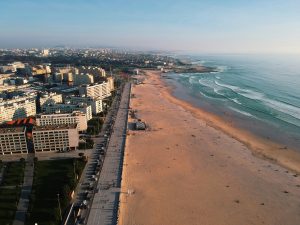Researchers of ICBAS, in Porto, have detected pathogenic bacteria, some even resistant to antibiotics, in the waters of bathing beaches in the North of the country, which they believe are driven by climate change.
In a publication on the website of the University of Porto, the ICBAS communication office states that the results were obtained within the scope of the BeachSafe project, which studies the presence of microbial agents in 10 beaches in the North of Portugal: Afife, Ofir, Póvoa do Varzim, Árvore, Matosinhos, Salgueiros, Aguda, Paramos, Cortegaça e São Jacinto.
According to ICBAS, climate change, namely the increase in temperature, variations in salinity and concentration of particles in the water, "seem to be responsible" for the spread of these bacteria, which represent "an unaccounted risk for public health", given that the official assessment is based on faecal indicators.
"The number of infections related to bathing water throughout the world, including in Europe, has been growing in recent years", says the Institute of the University of Porto, adding that most cases are associated with "indigenous bacteria" and “enteric viruses”.
“Most of the cases are associated with autochthonous bacteria that find favorable conditions to spread,due to climate change, or enteric viruses, as a result of the discharge of raw or poorly treated wastewater”, explains ICBAS.
The BeachSafe project, led by researchers from the ICBAS Laboratory of Hydrobiology and Ecology, is co-financed by the COMPETE2020 program, Portugal 2020, by the European Union through the FEDER and by the Foundation for Science and Technology (FCT).
Source: Jornal de Notícias
Photography: Paulo Novais (Lusa)







